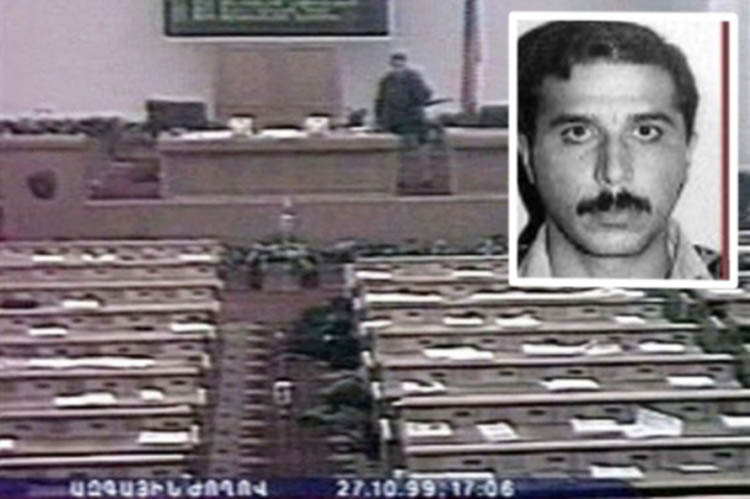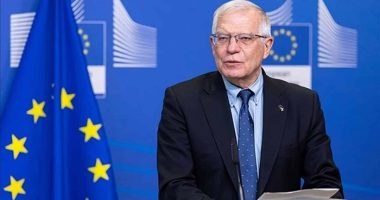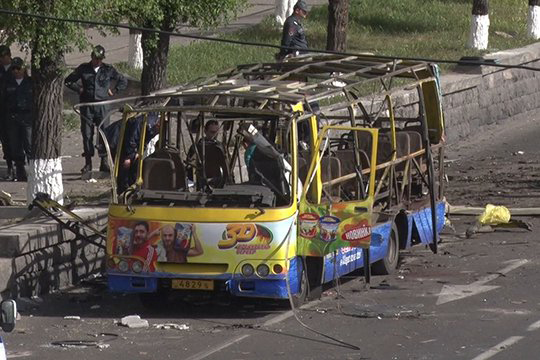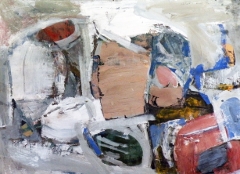FRESNO — The Armenian Studies Program held a two-day international conference on “Armenians, Greeks, and Kurds: A People’s History of the Ottoman Empire” on the weekend of September 22-23. Professor Barlow Der Mugrdechian, Director of the Armenian Studies Program, and Dr. Ümit Kurt, visiting postdoctoral fellow at Harvard University, organized the Conference to highlight Ottoman history from the peripheries, rather than from the position of power. Scholars presented their research on the experiences of Armenians, Greeks, and Kurds from the late 19th century to World War I.
The Conference was co-sponsored by the College of Arts and Humanities and the Department of History with support from the Thomas A. Kooyumjian Family Foundation, the Leon S. Peters Foundation, and the M. Victoria Karagozian Kazan Fund for Armenian Studies.
Professor Der Mugrdechian provided historical context to the conference in his introduction. According to Der Mugrdechian, the Tanzimat Reforms in the nineteenth century disrupted the balance of power between the central Ottoman government and periphery. It gave hope to the oppressed but instilled jealousy in the ruling class. Der Mugrdechian stressed the importance of reexamining the relationship between Ottoman Turks and those they ruled by mastering the languages of the people, in this case, Armenian, Greek, and Kurdish.
Nilay Özok-Gündogan echoed this sentiment in her presentation, “Can One Save the Voices of the ‘Ordinary’ Kurds from the ‘Enormous Condescension of Posterity?’: Thoughts on Writing the Social History of the Kurds in the Ottoman Empire.” According to Özok-Gündogan, when historians write about ordinary people, they often describe them as mobs with little agency. They overemphasize the power the Ottoman government exercised over the provinces because they “take the wording of the text for granted” rather than examine Kurdish and Armenian sources. Varak Ketsemanian described a similar problem in his study on “The Armenian Revolutionary Movement Between Ideologies and Paradoxes: A Case Study of the Hunchakian Party Program (1890-1896).” According to Ketsemanian, historians too often focus on the leadership of the Armenian Revolutionary movements rather than on ordinary members. Ketsemanian examined the Hunchakian party and the paradoxes between the intellectual ideologies and realities on the ground.
Owen Miller, in his presentation on “The Colonization of the Mountains: Sasun, Zeytun and Dersim at the End of the Ottoman Empire,” described the central Ottoman government’s attempt to subjugate mountainous strongholds in the eastern provinces. According to Miller, many of these eastern areas, such as Sasun, Dersim, and Zeytun, were historically controlled by local lords and princes with little interference from Constantinople. Miller noted that the government was not able to exercise complete control over many of these regions until 1915, while Dersim was not truly integrated until the 1930s. The government used modern weaponry to brutally conquer these semi-autonomous regions. Miller noted the danger of relying on official sources when studying these events, as the military elite tried to cover up the violence they committed. He stressed the importance of accumulating information from various sources, as “authoritarianism is ultimately the monopolization of legitimate truth.”
David Gutman, in “The Sojourners of Harput (Kharpert): At the Intersection of the Local, Imperial, and the Global,” discussed the unique situation of Kharpert by examining Armenian migration. Gutman stated that a majority of the estimated 35,000-40,000 Armenians who migrated to America between 1885-1908 were from Kharpert. Though migrating to America was illegal in the Ottoman Empire, Armenians in Kharpert could afford the sophisticated smuggling networks. According to Gutman, this attests to Kharpert’s uniqueness, as the Armenians were more politically and economically stable and integrated than in other provinces. Because of this, Armenians bore the brunt of the Genocide as local Turks sought to destroy this successful community. Ümit Kurt similarly noted the role Armenian prosperity played in social relations in his study on “The Breakdown of a Previously Peaceful Coexistence: The Aintab Armenian Massacres of 1895.” According to Kurt, peace between the Armenians and Muslims in Aintab dissolved as wealth concentrated in the hands of Armenians. Muslims, as the dominant class, were unable to keep up with Armenian progress and became resentful. Local notables thus took advantage of the Armenian massacres and used the opportunity to confiscate Armenian wealth.
Ugur Z. Peçe’s lecture, “From Ballots to Barracks: The Conscription of non-Muslims at a Time of Parliamentary Politics in the Ottoman Empire, 1908-1912,” examined debates surrounding Greek conscription in the Ottoman army using parliamentary records and Greek newspapers. Emre Can Daglioglu, in “Intra-Imperial Space and Anti-Armenian Violence in the Ottoman Empire: The Aghtamar Catholicos Khatchadur III and the 1895 Van Massacre,” examined how Khatchadour III accrued social capital in the periphery and mobilized it against the Patriarchate in Istanbul. Janet Klein concluded the Conference with her novel study on “Armenian Minorityhood in Ottoman and Russian History and Historiography?”, which compared the concept of “minorityhood” in Ottoman and Russian historiography.
A video of the entire Conference is available on Facebook @HyeSharzhoom.
Michael Rettig
Editor-Hye Sharzhoom










